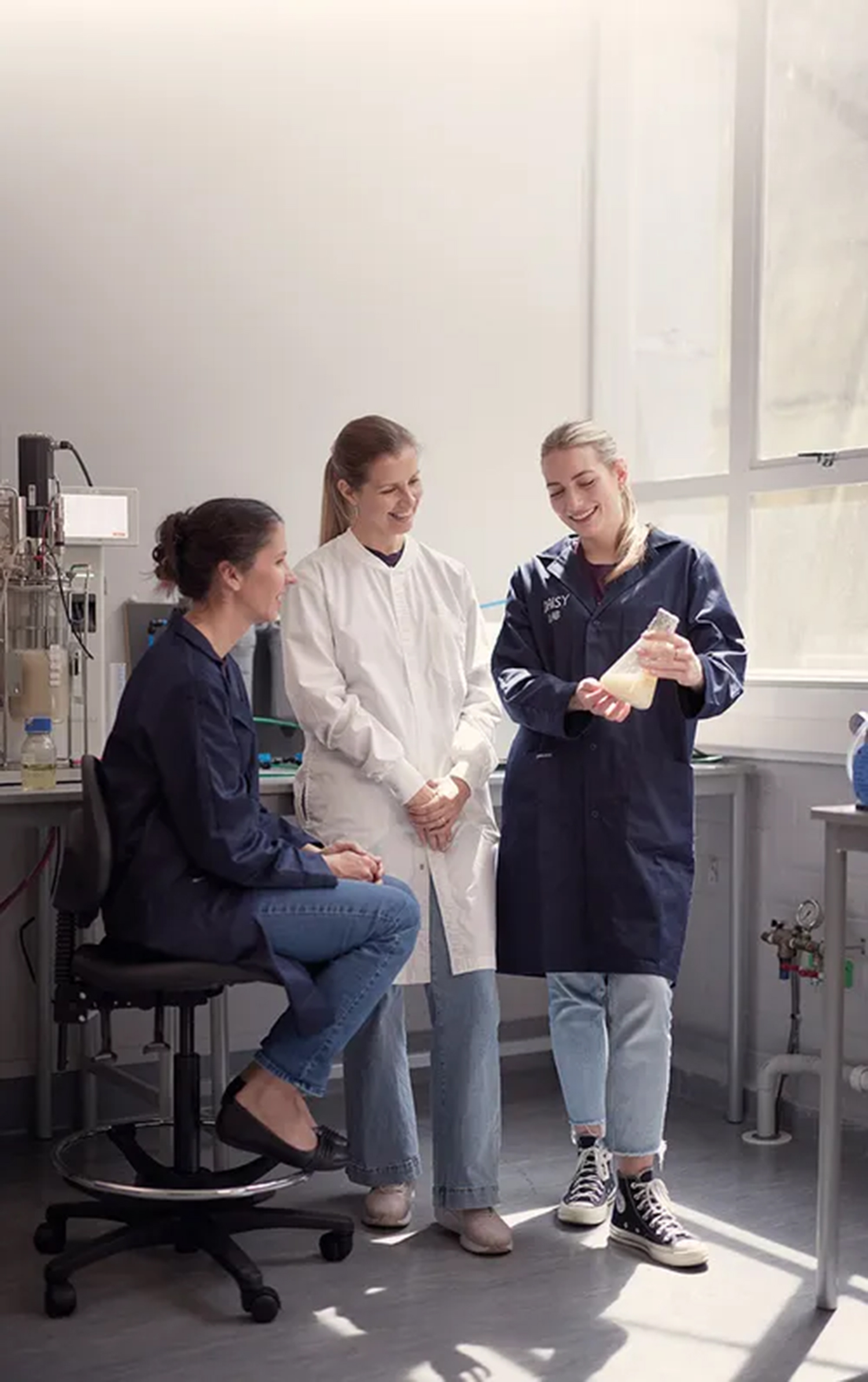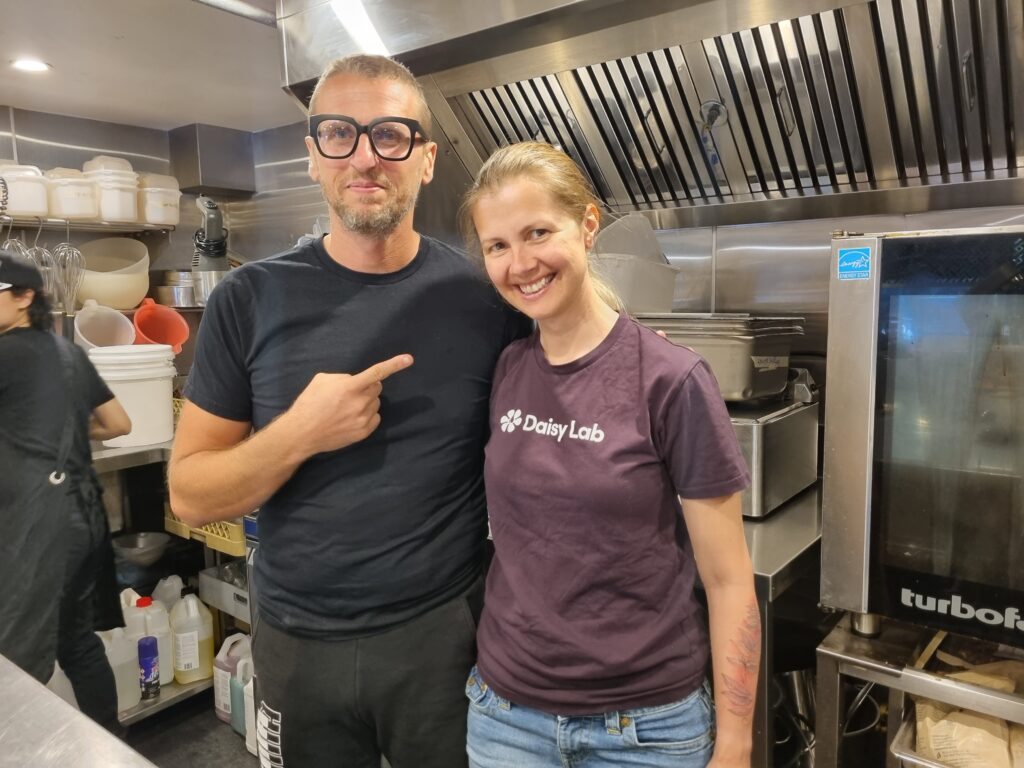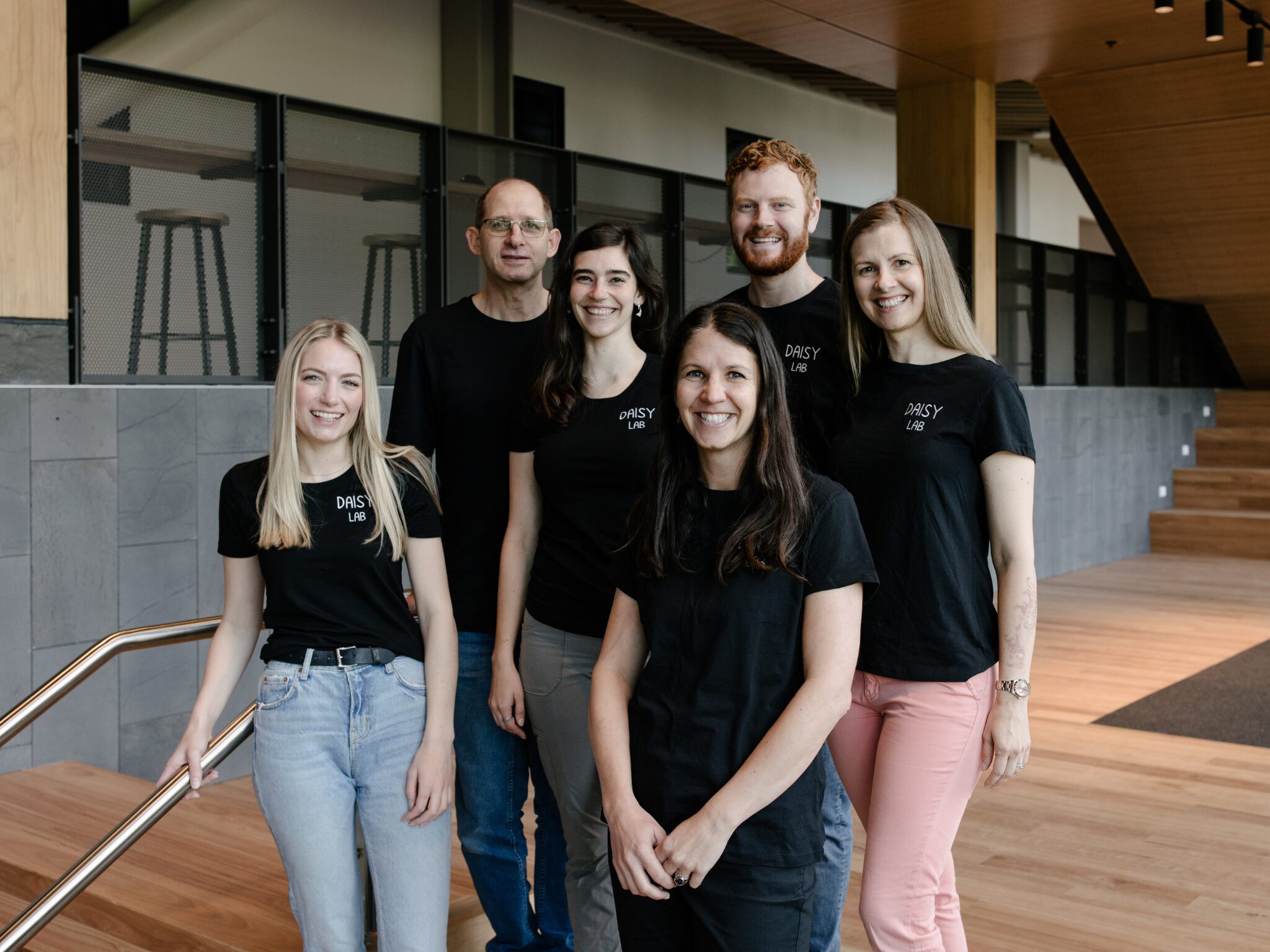Daisy Lab: Women-Led NZ Startup Scales Animal-Free Whey Production, Diversifies Protein Portfolio
5 Mins Read
New Zealand’s Daisy Lab has scaled up the production of its precision-fermented beta-lactoglobulin powder a year after discovering its initial expression systems, while diversifying into lactoferrin to boost its commercial gains.
Just over a year after discovering its initial proprietary protein expression systems, Auckland-based precision fermentation startup Daisy Lab has successfully manufactured the first batch of its animal-free whey, marking rapid progress.
The company has completed the production of powdered whey protein using yeast cultures in its 10-litre fermenters, which has undergone rigorous external testing. “This accomplishment empowers us to delve into the creation of innovative edible product prototypes,” said co-founder and CEO Irina Miller.
Disrupting New Zealand’s dairy industry

Daisy Lab is working on beta-lactoglobulin, the main whey protein found in dairy, with properties like gelling, foaming and emulsification that enhance mouthfeel and texture in food and drink applications. It’s the whey protein found in the labs of most precision fermentation dairy startups, having been commercialised by Californian pioneer Perfect Day, and produced by Israeli startups Remilk and Imagindairy.
These are the only three companies in the space to have received regulatory approval from the US FDA, proving there’s room for success with the approach. Other startups working with the protein include Vivici (the Netherlands) and Bon Vivant (France) – an independent life-cycle assessment commissioned by the latter has revealed that animal-free beta-lactoglobulin emits 96% less carbon, needs 99% less water, and uses 92% less land than its conventional counterpart.
This echoes Perfect Day’s analysis, whose whey protein emits 91-97% fewer emissions, requires 29-60% less energy, and consumes 96-99% less water than conventional dairy. These numbers set a precedent for animal-free startups trying to disrupt the $27M beta-lactoglobulin market and – in Daisy Lab’s case – their home country’s gigantic dairy sector.
New Zealand is known for its heavy reliance on dairy, whether that’s through consumption or financial factors. Government figures show that half of all its emissions come from agriculture, and of these, three-quarters are a direct result of methane from livestock digestive systems. New Zealand is the world’s largest exporter of dairy proteins, while its dairy sector is responsible for one in every four export dollars the nation earns, contributing $11.3B to the economy.
The country’s per capita milk consumption reaches 400 million litres a year, with 190 two-litre bottles of milk sold every minute in supermarkets, according to Fonterra, the world’s largest dairy producer and New Zealand’s biggest company. The dairy giant has itself seen the value of sustainable proteins, collaborating with DSM Firmenich to launch the aforementioned Viver as a joint venture. Coincidentally, Miller is a former Fonterra employee, who left the company, became vegan, and launched Daisy Lab in 2021.
Diversifying into lactoferrin and planned fundraising

Daisy Lab has exceeded its initial target of producing 3g of protein per litre of growth medium, reaching 10g instead. “Our focus remains on continuing to increase the yield, aspiring to reach up to 20 or potentially 30 grams per litre in the not-so-distant future,” said co-founder and COO Emily McIsaac.
A litre of conventional whey liquid has about 0.6% of protein, 6% lactose and 0.7% minerals – the latter two are usually removed via an ultrafiltration process to concentrate and purify whey protein. Daisy Lab’s precision-fermented whey liquid has a higher protein content, a similar amount of minerals, and zero lactose, meaning it can be purified using traditional dairy ultrafiltration and diafiltration processes and equipment.
“Daisy Lab has developed our own proprietary filtration methodology, which is based on the traditional dairy whey processing methodology and is tailored to the fermentation liquid produced by our yeast,” Miller told Green Queen. “Based on the data we are getting now, we expect that compared with traditional dairy at the industrial scale, our process will be faster (hence requiring less energy) and will produce cleaner final protein.”
The company has recently diversified into lactoferrin R&D too. A highly in-demand whey protein, it’s found in human milk and bovine colostrum produced just after birth, and boasts many functional benefits, including antiviral, antibacterial, anti-carcinogenic, immunity-boosting, gut-strengthening and iron regulation properties.
But it takes at least 10,000 litres of milk to produce just 1kg of purified lactoferrin, which currently retails for $750-$1,500 per kg and is restricted to essential applications like infant formula and supplements. Using precision fermentation can undercut bovine lactoferrin on price a lot sooner than bulk whey proteins, according to Daisy Lab. It’s the same reason companies like Singapore’s TurtleTree are developing this whey protein.
“Due to some reported headwinds in the alternative proteins’ investment market, we felt that we needed to bolster our commercial strategy,” explained Miller. “Production of lactoferrin can substantially accelerate the investment returns for our current and future investors.” She added that the company is already generating more lactoferrin than a cow. “Likewise, we still want to continue working on bulk proteins, like beta-lactoglobulin, as we still see a higher potential for them to reduce greenhouse gas emissions and animal suffering.”
Miller said the next phase is to scale the lactoferrin process within its fermenters over the next 12 months, as well as raise additional funds to build a 1,000-litre pilot plant. The company has previously received a NZ$250,000 ($150,000) injection from Stephen Tindall’s K1W1 and Icehouse Ventures in 2022, followed by a NZ$1.5M ($930,000) seed funding round last year.
“Our current plan is to be an IP partner to food and beverage companies interested in producing products using precision fermentation,” she outlined. “In particular, we see ourselves working with current dairy processors globally, helping them to switch their processing capacities to precision fermentation whey.”




